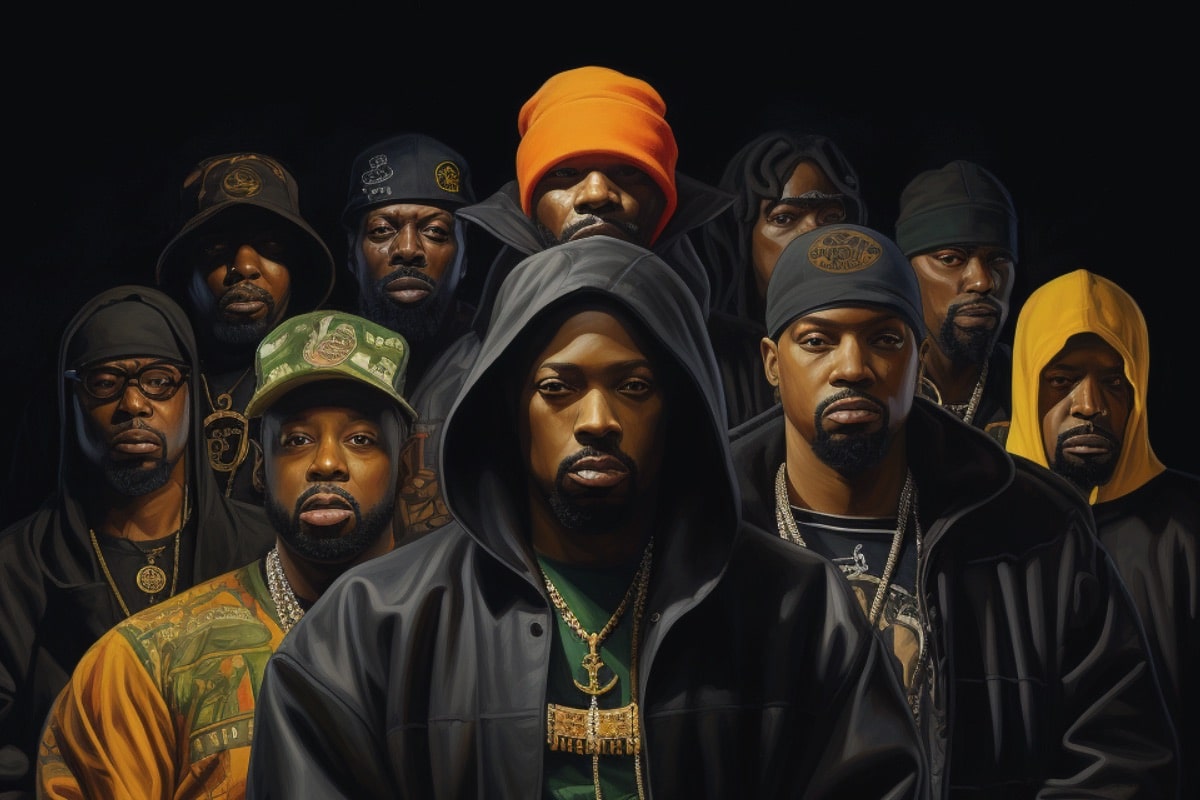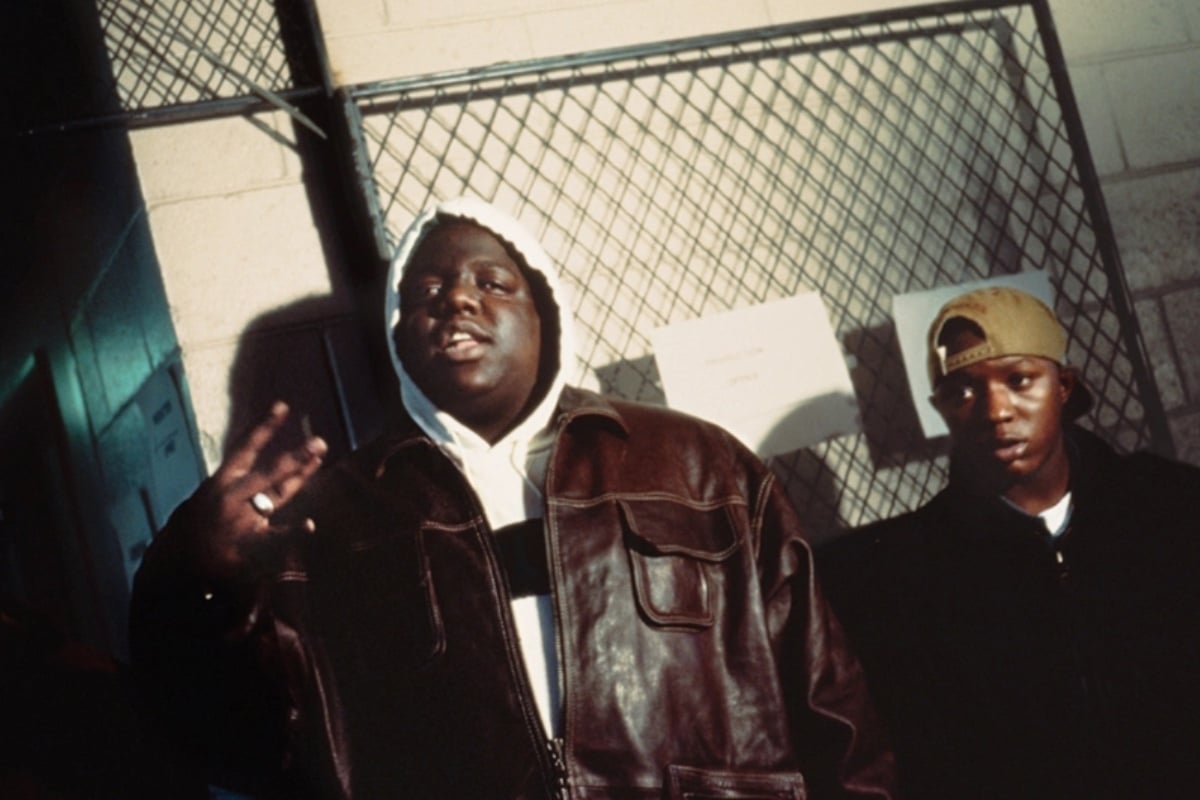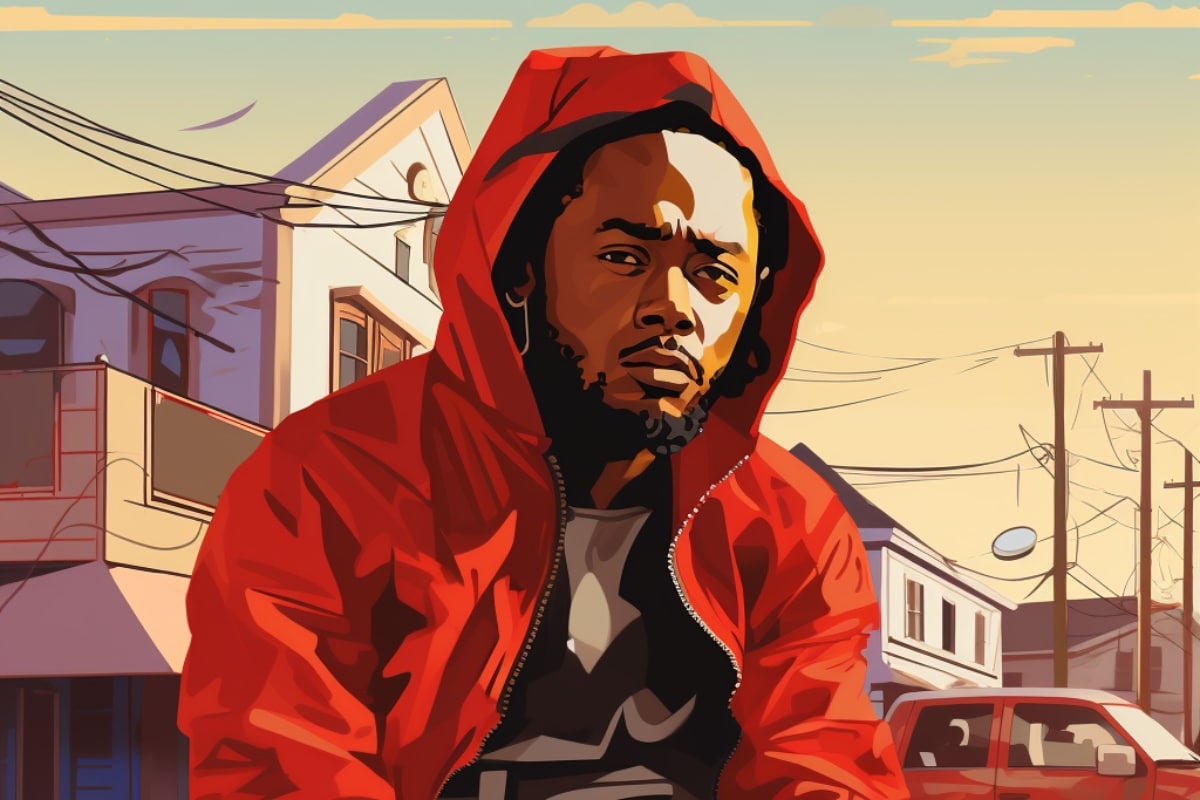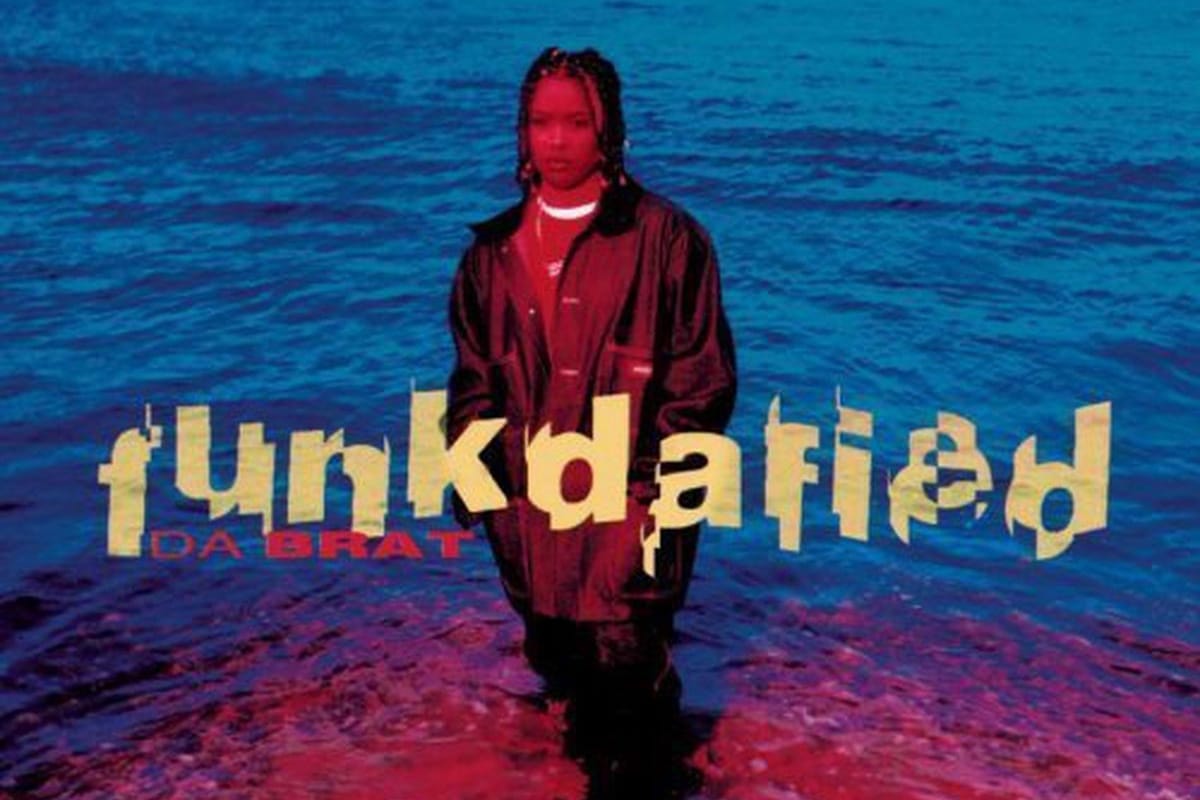In the realms of hip-hop, where tales of struggle, survival, and triumph are woven into beats and rhymes, a collective emerged from the rugged terrains of Staten Island and Brooklyn, New York, crafting a legacy that would echo through the annals of hip-hop history. Enter the Wu-Tang Clan, a conglomerate of MCs who, with their distinct styles and philosophical underpinnings, forged a path that redefined the genre and culture.
Wu-Tang Clan wasn’t just a group; it was a movement, a philosophy, and a revolution in the hip-hop world. Formed in the early 90s, the Clan introduced a new era where lyrical prowess, diverse flows, and thematic depth were interwoven with gritty, raw, and innovative production. Spearheaded by the enigmatic RZA, the Clan sculpted a soundscape that was as diverse and complex as the members themselves.
The Wu-Tang Clan’s inception was not merely about music; it was a strategic maneuver, a calculated chess move orchestrated by RZA. The vision was clear: establish the Wu-Tang as a powerhouse, then allow each member to venture into solo careers, thus spreading the Wu philosophy across the industry. The strategy was not just revolutionary; it was brilliantly insurgent, infiltrating the industry with a sound, ethos, and business model that was unprecedented.
Let’s get down to it, here’s all the Wu-Tang Clan members (and real names), along with their solo careers.
RZA aka Robert Fitzgerald Diggs

Ayo, let’s talk RZA, the mastermind, the architect behind the mighty Wu-Tang Clan, but also a maestro in his own right when he stepped into the solo arena. RZA didn’t just craft beats; he sculpted soundscapes, creating auditory worlds that transcended the conventional boundaries of hip-hop. His solo venture, “Bobby Digital in Stereo,” introduced us to his alter ego,
Bobby Digital, a character that allowed RZA to explore different thematic and sonic territories. The album was a fusion, blending his gritty, raw production with a sci-fi, comic book-esque narrative that was both experimental and innovative. But RZA’s successes ain’t just confined to the mic and the boards. His foray into film, scoring movies like “Ghost Dog: The Way of the Samurai” and directing the martial arts epic “The Man with the Iron Fists,” showcased his versatility and ability to craft narratives beyond the auditory realm. RZA ain’t just a producer or an MC; he’s a storyteller, weaving tales through beats, rhymes, and visuals, solidifying his legacy as one of hip-hop’s true renaissance men.
GZA aka Gary Grice

The Genius, armed with a lyrical precision and a contemplative style, GZA’s narratives often delved into the philosophical that were so sharp, they cut through the fabric of hip-hop, leaving a mark that will forever bleed his wisdom. GZA ain’t just a member of the Wu; he’s a philosopher, a storyteller, whose solo endeavors took us on journeys through the metaphysical and the concrete jungles of urban life.
“Liquid Swords,” his second solo joint, ain’t just an album; it’s a tome, a philosophical exploration layered with vivid, cinematic tales of street life, struggle, and survival. The Genius painted pictures with his words, crafting narratives that were both visceral and contemplative, his calm, deliberate flow serving as a stark contrast to the rugged, raw beats that underscored his rhymes. GZA’s impact ain’t just in his music; it’s in his ability to weave complex, multi-layered narratives that force us to think, to reflect, and to see the world through the lens of a true lyrical genius. His pen didn’t just write rhymes; it wrote the unwritten codes of the streets, the unspoken philosophies of the struggle, solidifying his legacy as one of hip-hop’s true lyrical architects.
Ol’ Dirty Bastard aka Russell Tyrone Jones
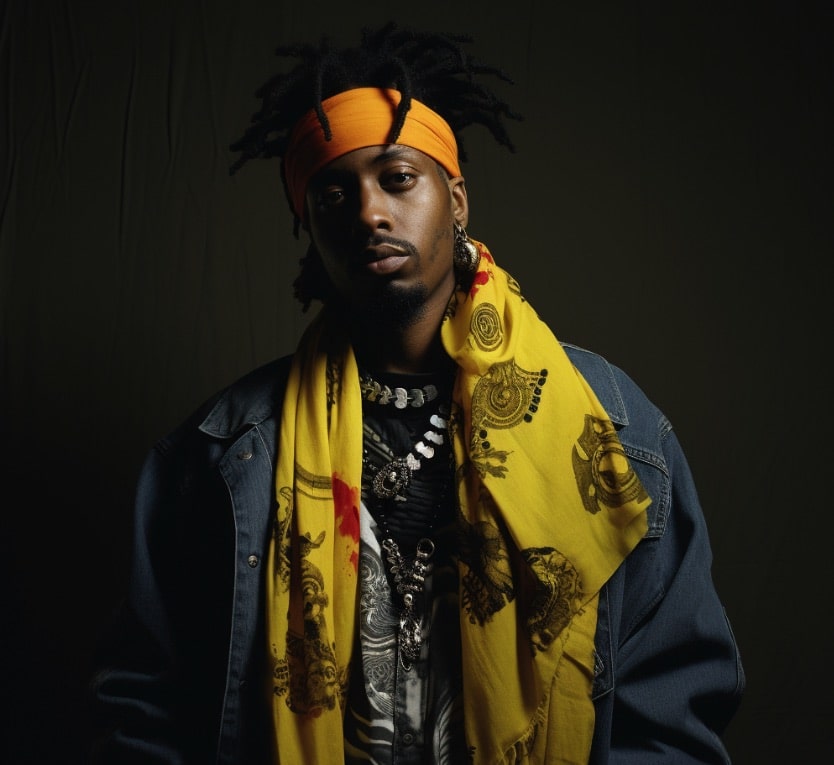
The wild card, ODB’s unfiltered, raw, and often chaotic style provided a stark contrast and an unpredictable element to the Clan’s sound. A character larger than life, ODB was an unfiltered, raw, and chaotic force that brought an unparalleled energy to the Clan. His solo journey, though, was a spectacle of its own, a rollercoaster of wild antics, raw emotion, and a unique style that was unmistakably Dirty.
“Return to the 36 Chambers: The Dirty Version,” his debut solo project, was a chaotic, yet brilliantly crafted masterpiece that showcased ODB’s ability to balance raw, gritty rhymes with a melodic, almost sing-songy style that was uniquely his own. Tracks like “Shimmy Shimmy Ya” and “Brooklyn Zoo” became anthems, embodying ODB’s wild, unpredictable nature and his ability to craft hits that resonated from the clubs to the streets. But ODB’s journey was also a tragic tale, a story of talent, turmoil, and the struggles that often accompany fame. His unapologetic nature, his wild, often erratic behavior, and his undeniable talent made ODB an icon, a legend whose legacy is both cautionary and celebratory. Ol’ Dirty Bastard was not just a rapper; he was an experience, a raw, unfiltered expression of the struggles, the pain, and the wild, unpredictable nature of life itself. Rest in power, ODB. Your spirit lives on.
Method Man aka Clifford Smith Jr.
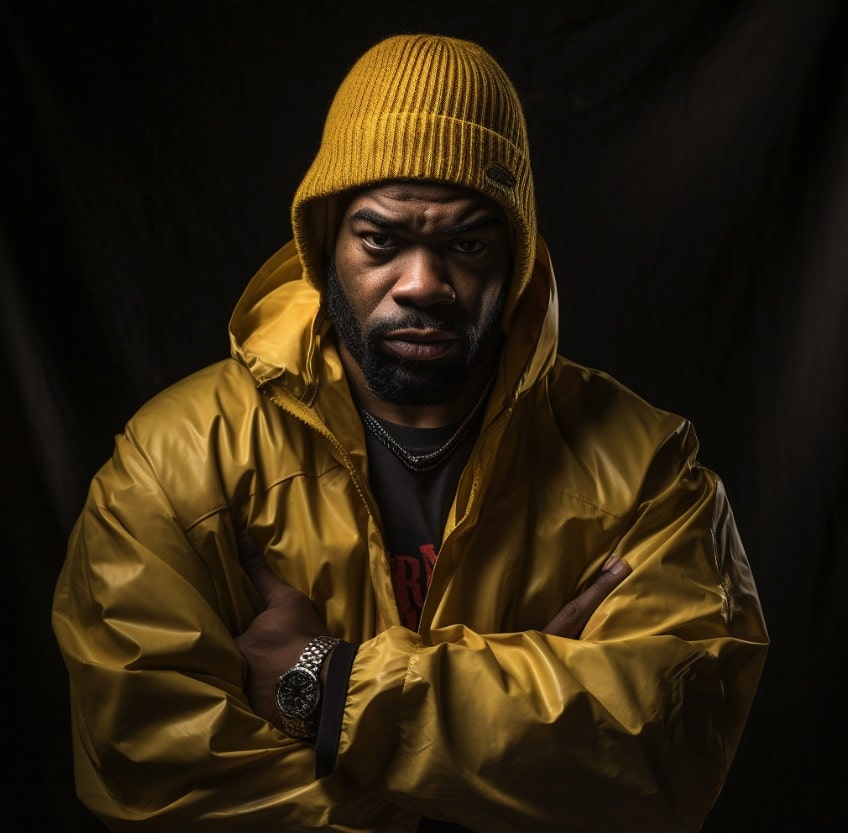
Let’s elevate and discuss Method Man, Johnny Blaze, the Ticallion Stallion, a lyrical sorcerer whose charisma, smooth flows, and raspy voice became synonymous with the Wu-Tang Clan. Meth wasn’t just a member; he was a vibe, a distinct energy that brought a unique flavor to the collective.
When he stepped into the solo cipher with “Tical,” he carved out a space that was distinctly Method Man. The album was a dark, gritty journey through the chambers of Meth’s mind, blending raw, hardcore rhymes with a smooth, laid-back flow that became his signature. Tracks like “Bring the Pain” and “All I Need” showcased Meth’s versatility, his ability to balance rugged street tales with heartfelt emotion. But Meth’s success wasn’t just confined to the booth. His charisma translated to the screen, with acting gigs in projects like “How High” and “The Wire,” showcasing his ability to bring characters to life with that same smooth, effortless style that defined his music. Method Man is not just an MC; he’s a performer, an artist whose medium may change, but whose unmistakable style permeates through every verse, every role, and every performance.
In the realms of hip-hop and beyond, Method Man remains a timeless icon, his legacy defined by his talent, his charisma, and his unapologetically raw, authentic energy.
Raekwon aka Corey Woods

Raekwon, The Chef, a lyrical maestro who cooked up some of the most vivid, mafioso-style narratives in the hip-hop kitchen. Rae wasn’t just spitting bars; he was crafting cinematic tales, painting pictures with a palette of street life, struggle, and survival. When he stepped into the solo spotlight with “Only Built 4 Cuban Linx…,” Raekwon crafted a masterpiece that wasn’t just an album; it was a sonic movie, a journey through the underbelly of the streets, told with a lyrical dexterity and a vivid imagination that was uniquely Rae.
The Chef didn’t just serve bars; he served experiences, crafting tales that transported listeners into the world he conjured with his words. Tracks like “Ice Cream” and “Criminology” weren’t just songs; they were episodes in a series, chapters in a book that explored the depths of street philosophy, loyalty, and the perpetual pursuit of prosperity amidst the chaos of the concrete jungle.
Raekwon’s legacy is not just in his ability to craft hits; it’s in his ability to tell stories, to create worlds with his words, and to transport listeners into the vivid, often gritty realities of the narratives he spun. The Chef didn’t just cook up tracks; he cooked up experiences, serving listeners a feast of lyrical prowess, vivid storytelling, and a raw, unfiltered exploration of life in the trenches. Raekwon, a true culinary genius of the hip-hop world, forever etching his flavors into the annals of the culture.
Ghostface Killah aka Dennis Coles

Let’s navigate through the spectral world of Ghostface Killah, Tony Starks, a man whose lyrical narratives are as emotionally charged and vivid as a Scorsese flick. Ghostface didn’t just rap; he bared his soul on the mic, crafting tales that were as heartfelt and vulnerable as they were rugged and raw. When Ghost stepped into the solo cipher with “Ironman,” he delivered a project that was a lyrical tapestry, weaving narratives of street life, love, loss, and survival into a masterpiece that resonated from the block to the burbs.
Ghostface’s narratives were cinematic, his delivery, a passionate cascade of emotions and vivid imagery that transported listeners into the worlds he crafted with his words. His sophomore joint, “Supreme Clientele,” further solidified Ghost’s reputation as a storyteller par excellence, blending his raw, emotional delivery with narratives that were both fantastical and deeply rooted in the harsh realities of street life.
But Ghost wasn’t just a storyteller; he was an emotional conduit, channeling pain, love, anger, and joy through his verses, allowing listeners a glimpse into the soul of a man who was both a rugged street poet and a vulnerable, emotional being. Ghostface Killah didn’t just contribute verses to the culture; he contributed pieces of himself, crafting a legacy that is as rich, complex, and multi-faceted as the narratives he spun. Ghost’s legacy is etched in the emotional depth, narrative complexity, and raw, unfiltered authenticity he brought to every track, every verse, and every word he laid on the mic. Ghostface Killah, a spectral lyrical genius whose soul forever haunts the chambers of hip-hop.
Inspectah Deck aka Jason Hunter
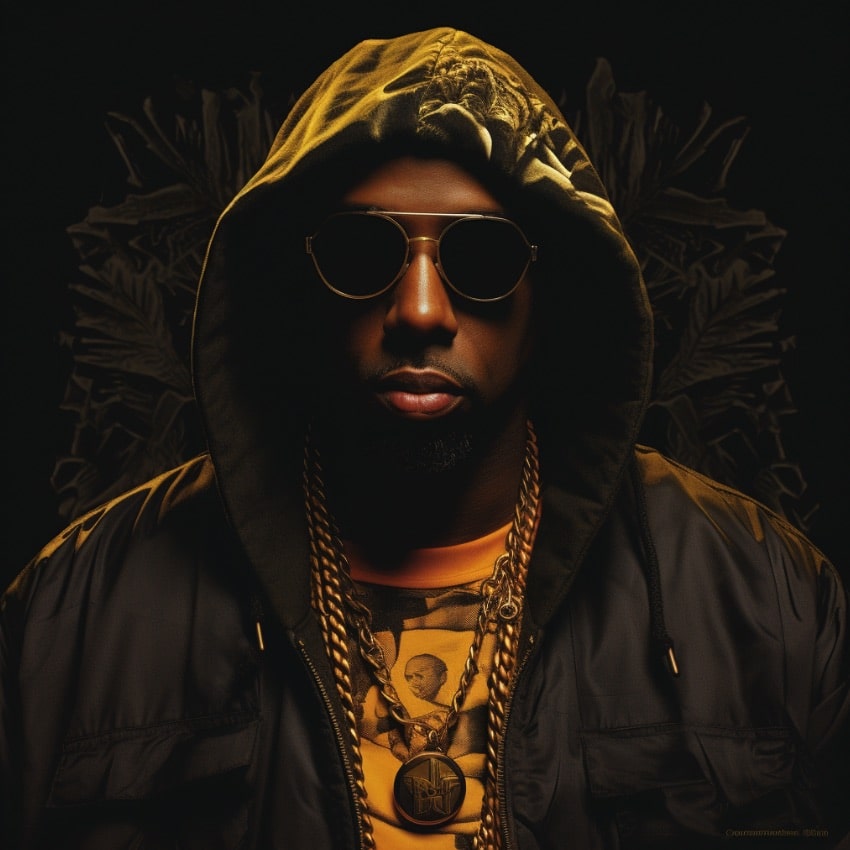
The Rebel INS, known for his complex, multi-syllabic rhymes and introspective style, Deck often served as the quiet yet deadly assassin of the Clan.
Deck’s pen was mightier than the sword, crafting verses that were cerebral, potent, and philosophically charged. Deck was a thinker, a strategist, whose verses often dove deep into the mental and spiritual realms, exploring themes of struggle, survival, and the philosophical quandaries of street life.
When Deck stepped into the solo sphere with “Uncontrolled Substance,” he delivered a project that was a reflection of his cerebral, contemplative style. His narratives were not just tales; they were reflections, explorations into the psychological and spiritual dimensions of the experiences he conveyed. Tracks like “R.E.C. Room” and “Femme Fatale” showcased Deck’s ability to balance rugged street tales with a philosophical depth that was uniquely his own.
Inspectah Deck was not just a lyricist; he was a philosopher-poet of the Wu, crafting verses that prompted listeners to think deeper, to look beyond the surface and explore the psychological and spiritual dimensions beneath. His contributions to the Wu and to hip-hop as a whole are imprinted in the depth, complexity, and cerebral nature of his verses, crafting a legacy that is as intellectually stimulating as it is sonically pleasing. Inspectah Deck, a true lyrical tactician, forever etching his philosophical explorations into the annals of hip-hop lore.
U-God aka Jody Hawkins

With a deep, gravelly voice and a straightforward, no-nonsense style, U-God added a robust, solid presence to the Clan’s arsenal, whose deep, gravelly voice and straightforward, punchy lyrical style added a unique flavor to the collective’s eclectic mix. U-God’s verses were like a straight shot of whiskey; no chaser, delivering raw, unfiltered narratives of street life, struggle, and survival with a vocal tone that was unmistakably his own.
When U-God stepped into the solo spotlight with “Golden Arms Redemption,” he presented a project that was a reflection of his straightforward, no-nonsense style. Tracks like “Bizarre” and “Rumble” showcased U-God’s ability to deliver rugged, raw rhymes with a vocal presence that demanded attention. His narratives, often grounded in the harsh realities of street life, were delivered with a potent mix of raw aggression and cool, calculated delivery.
U-God’s contributions to the Wu and the world of hip-hop are often underscored, but his unique vocal tone and straightforward, unfiltered lyrical style have left an indelible mark on the collective and the culture. U-God didn’t just deliver verses; he delivered raw, unfiltered slices of life from the streets of Staten Island, crafting a legacy that is as rugged, raw, and real as the narratives he spun. U-God, Golden Arms, a true unsung hero of the Wu-Tang saga, forever solidifying his place in the rugged and raw annals of hip-hop history.
Masta Killa aka Elgin Turner

Let’s journey into the enigmatic realms of Masta Killa, the silent chess player of the Wu-Tang Clan, whose calculated, deliberate style brought a unique, contemplative energy to the collective. Masta Killa was a lyrical sniper, choosing his words with precision, delivering verses that were thoughtful, introspective, and philosophically charged.
When Masta Killa stepped into the solo light with “No Said Date,” he brought forth a project that was a reflection of his quiet, contemplative demeanor, yet packed with lyrical potency. Tracks like “D.T.D” and “Old Man” showcased Masta Killa’s ability to weave thoughtful, reflective narratives with a calm, deliberate delivery that was distinctly his own.
Masta Killa’s contributions to the Wu and the hip-hop culture are etched in his ability to speak volumes with a whisper, to convey depth, wisdom, and contemplation through his carefully chosen words and calm, deliberate delivery. His verses were not just rhymes; they were meditations, reflections on life, struggle, and the human condition, delivered with a quiet strength and philosophical depth that has solidified his legacy as one of hip-hop’s contemplative sages. Masta Killa, a true lyrical philosopher, forever imparting his quiet wisdom on the vibrant tapestry of hip-hop culture.
In the chambers of hip-hop history, the Wu-Tang Clan will forever be enshrined as pioneers, innovators, and icons, their legacy serving as a testament to the power of unity, diversity, and the unfiltered expression of life’s raw, unmitigated realities. Wu-Tang Forever.
Want to learn more? We’ve also ranked the best solo albums from wu-tang members to keep those juices flowing.
